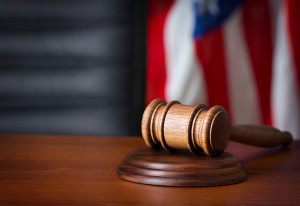
US Supreme Court Set to Rule on NLRB Class Action Arbitration Waiver Dispute
- January 26, 2017
- William Heyman
- Comments Off on US Supreme Court Set to Rule on NLRB Class Action Arbitration Waiver Dispute
Increasingly, arbitration clauses buried in the fine print of contracts and agreements are an issue of concern and legal challenges. A related issue concerns the use of class action waivers in these agreements. A class action waiver of this type in an arbitration agreement requires a contracting party to forego their right to bring a class action lawsuit in a court of law. Rather, these agreements mandate that the individual must bring an individual claim in the appropriate arbitration forum despite circumstances that would otherwise make the matter ripe for a class action lawsuit. Baltimore business attorney William S. Heyman explains below.
These agreements are increasingly in use in business human resources (HR) and legal departments. However, the National Labor Relations Board claims that clauses of this type are contrary to the provisions of the National Labor Relations Act (NLRA). The U.S. Supreme court has granted certiorari in this matter to resolve a split among the federal circuit courts.

Any organization that utilizes agreements of this type to manage class action lawsuits, will potentially be affected by the approach the court decides to take in this matter. Businesses should begin considering potential alternative approaches to mitigating legal risk. Attorney William Heyman of the Law Firm of William S. Heyman may be able to put his twenty years of legal experience to work for your business or organization.
What Issues Led to the Supreme Court’s Review of Class action Waivers?
The matter that will be heard before the Supreme Court is actually a consolidated case stemming from three unrelated matters concerning similar questions of law. The first matter, Lewis v. Epic Systems Corp., 15-2997 (7th Cir. 2016), involved a wage and hour class action lawsuit alleging worker misclassification. In this case, the Seventh Circuit found that the arbitration agreement signed by employees violated aspects of the National Labor Relations Act (NLRA). The second case, Morris v. Ernst & Young, 5:12-cv-04964 (9th Cir. 2016), also involves allegations of worker misclassification to deny overtime benefits. Here, the Ninth Circuit found that the agreement violated the NLRA. In the third and final matter, Murphy Oil USA Inc. v. NLRB, 14-60800 (5th Cir. 2015) a court found that similar arbitration agreements prohibiting the use of class-action procedures did not constitute unfair labor practices. Apparently, due to the split among the lower courts, the United States Supreme Court decided to hear the matter.
Does an Employee Have a Right to a Class Action Lawsuit? Do Employers Have a Right to Bargain to Limit Employee Remedies?
Essentially this matter comes down to several core legal questions. First, courts must reconcile a recent trend toward the use of alternative dispute resolution with questions of rights held by individuals. More specifically, this issue turns on whether access to a class action lawsuit is a right or merely a procedural choice. If the ability to choose to file a class action lawsuit is a right, then it is highly likely that employers will need to rethink their approach to these agreements. However, if the court finds that a class action lawsuit is just one of many procedural choices, it is less likely that it will take action to disturb the already negotiated contracts between employers and employees.

Also implicit in the court’s task is weighing certain underlying assumptions that undergird the push for expanded use of arbitration and alternative dispute resolution. Is judicial efficiency really improved by numerous potentially duplicative arbitration proceedings concerning a common core of facts and questions of law? Furthermore, some have suggested that a bar on class action lawsuits doesn’t necessarily foreclose the possibility of efficiency since litigants could choose to share information, work with the same lawyer, and call the same witnesses. However, the practical implementation of such an approach does seem problematic especially as it relates to witnesses and the right to cross-examination.
Put More than Two Decades of Legal Experience to Work for Your Business with Baltimore Business Lawyer William S. Heyman
For more than 20 years, Baltimore business formation lawyer William Heyman has helped businesses navigation existing and emerging legal challenges. If your company or organization makes extensive use of class action arbitration waivers, it may be prudent to discuss what an adverse Supreme Court decision could mean for your company and potential paths forward. To schedule a confidential initial consultation, call the Law Firm of William S. Heyman at (410) 305-9287.
